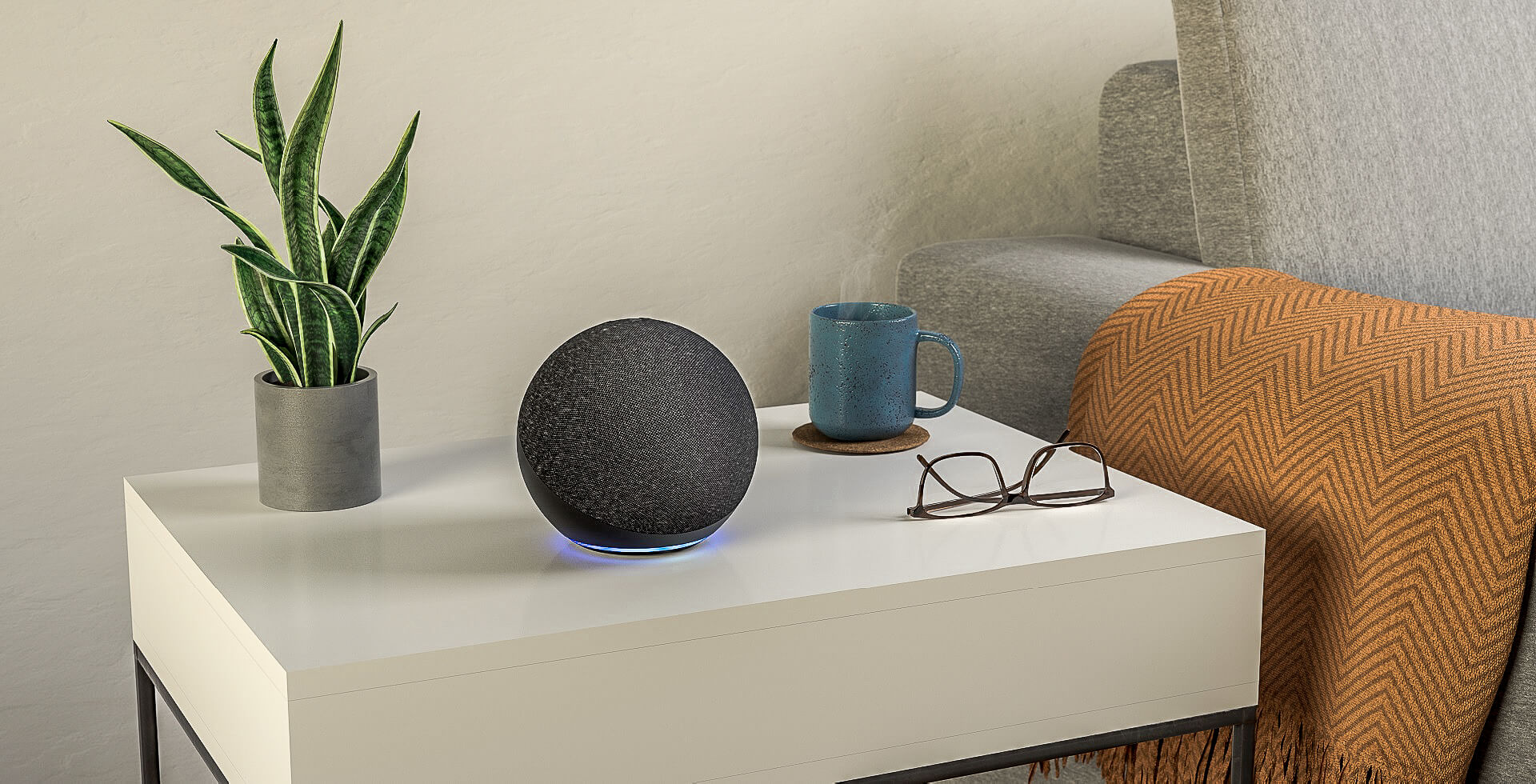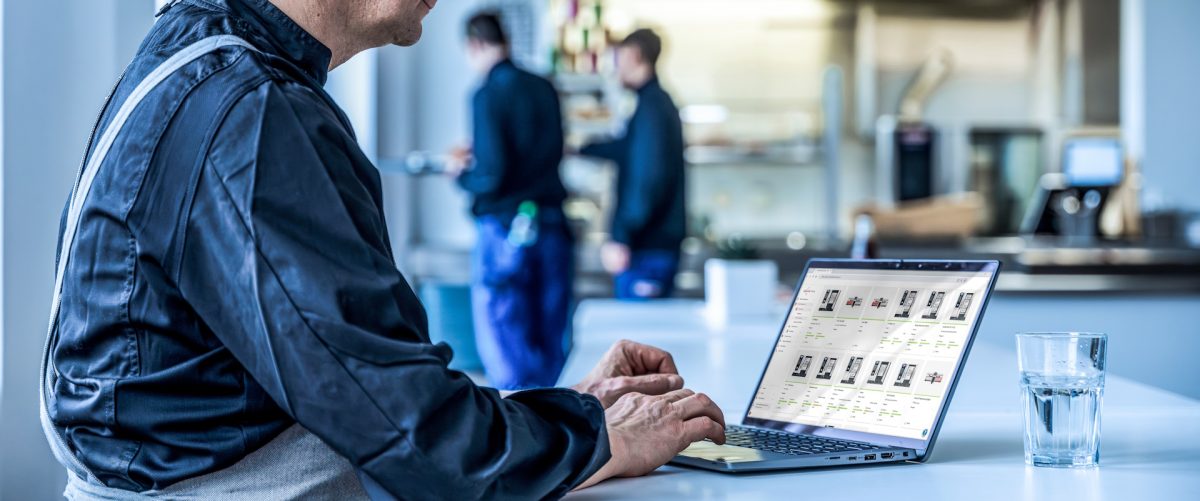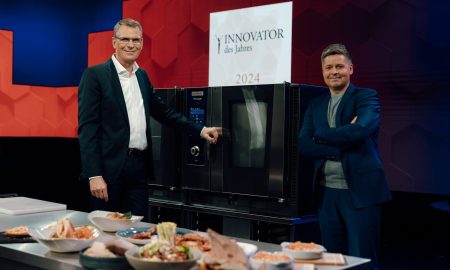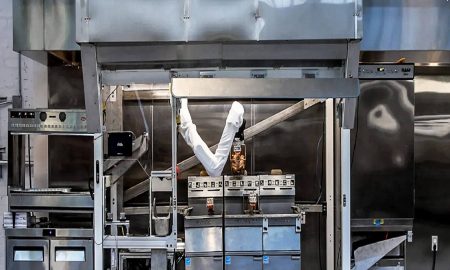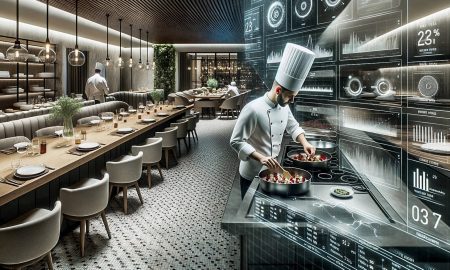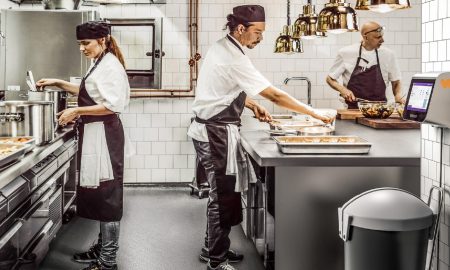Imagine the perfect receptionist: Polite and all-knowing, never stressed and always on hand. He or she doesn’t need any tips or lots of space, and his/her name is easy to remember. Alexa for Hospitality has been specially developed for the hotel industry and is now in use in the USA, Canada, Great Britain, France, Italy and, since recently, also in Germany.
On request, the voice AI can play your favorite song or whale song, have champagne and towels brought to your room or move the check-out time so you can sleep longer. Alexa also controls lights, thermostats and blinds, even tells you the Wi-Fi password and how to get to the gym. Hotels also have the option of activating additional skills from the Alexa Skill Store. These features enable guests to play games, check wait times at the airport or have Alexa explain fitness exercises, for example. The privacy of the guests is always protected and the conversation is not saved. At least that’s what Amazon promises.
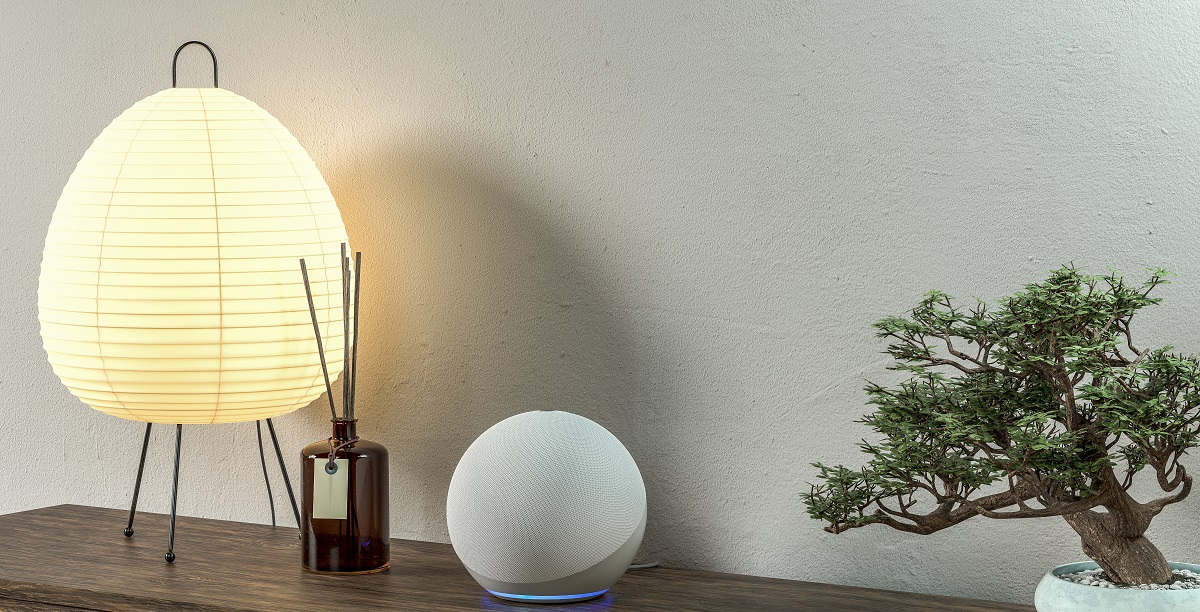
Image: Amazon.com, Inc. or its affiliates
Alexa for Hospitality: Smart use for day-to-day hotel business
Although the USA has made significant progress compared to the European market in terms of voice-controlled technology in the hotel industry, interest in Alexa, Siri & co. can also be clearly felt in European countries and initial projects have been started.
The recently renovated Mercure Hyde Park Hotel in London was the first hotel in England to introduce Alexa for Hospitality in September 2021. The hotel was looking for a solution to improve service, while relieving the workload of the overwhelmed team. “Previously, we needed countless pieces of paper, checked boxes in a grid and handed everything over to the receptionist so that they could update the system manually. This took up to an hour in some cases. Now we have Alexa. And our employees love it, because it’s so easy to update processes like this through voice control alone,” says Edward Wilcock, Director of Revenue at Mercure Hyde Park Hotel in the hotel case study.
Sieh dir diesen Beitrag auf Instagram an
Alexa, a burger please!
According to the study, Alexa in hotels can also deliver precise analyses of guest behavior. For example, the voice AI recognized that the demand for burgers was particularly high between 10 pm and 11 pm, and expanded the night menu accordingly. Thanks to the virtual receptionist, room service revenue increased by 12% overall, response speed increased by 30 % and overall guest satisfaction improved by 20 %.
Challenge: Guest satisfaction without on-site staff
Sandy and Mike Wieber also wanted happy guests when they bought a small hotel in 2010. In the heart of St. Augustine, a picturesque town on the north coast of Florida, proudly named the “Nations Oldest City”. The town, founded by a Spanish admiral, dates back to 1565.
“From the very beginning, our top priority has been to address the needs of every guest personally and to offer them a unique stay. It was easy with just one hotel,” recalls Sandy Wieber. But over time, more locations and rooms have been added. By 2018, the couple’s Bayfront Marin House already included 17 Bed & Breakfast rooms and a private apartment in downtown St Augustine, as well as four private beach cabins on Vilano Beach, five kilometers away. Since not all locations have their own reception, it was not possible to have employees on site everywhere. So what could be done? How do you give the feeling that you are always available without being physically present?
Digital voice assistants – as support for the team
The solution was obvious for Mike and Sandy Wieber. “I originally come from the communications industry, my husband came from the IT industry. We knew we could use technology to create a personalized experience for our guests – we just needed to find a tool that we could adapt to our needs and that made our guests feel like they were talking to one of our team members, and not a cold, pre-programmed computer.” So the couple decided on Angie, a digital voice assistant from Nomadix, which – like Alexa for Hospitality – was specially developed for the hotel industry, but which – unlike Alexa for Hospitality – also has an integrated touchscreen function.
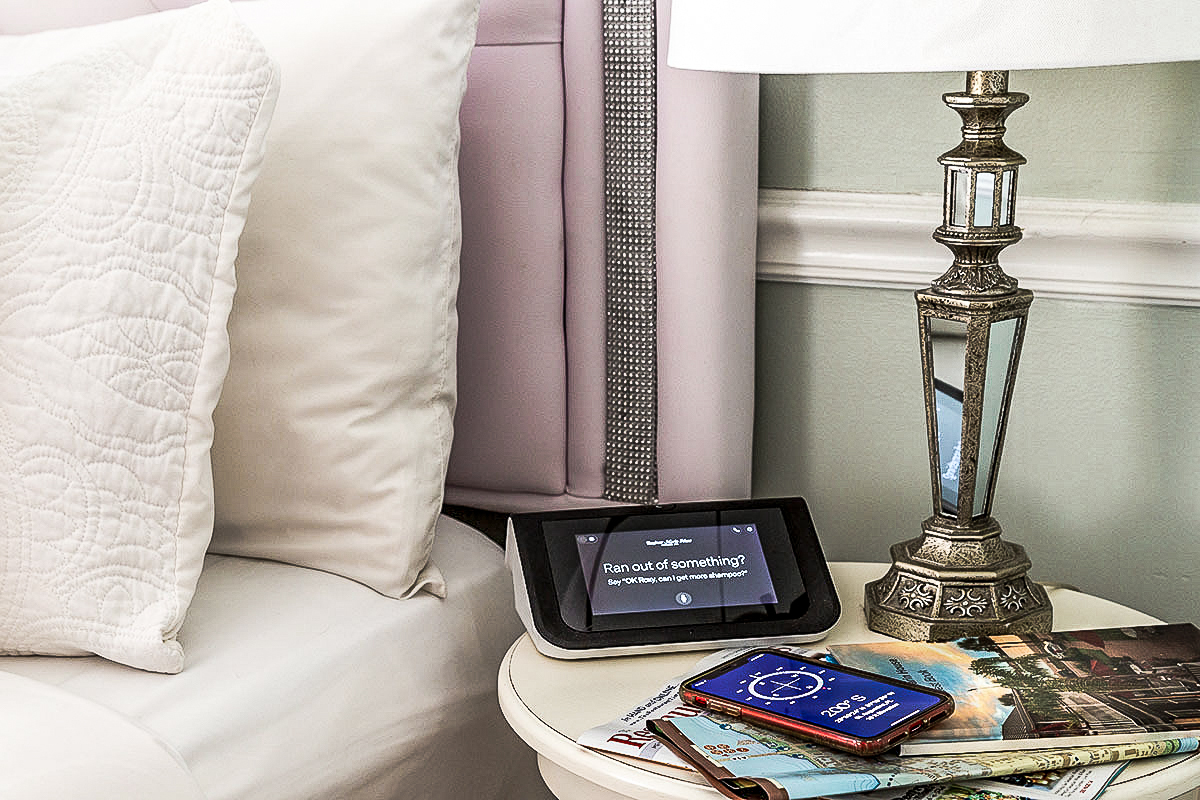
Image: Bayfront Marin House
Positive feedback for voice assistance
According to the hotel owner, it is difficult to tell whether Angie attracts a younger clientele. But the digital assistant is definitely well received by everyone. “Our guests mention Angie in their online reviews and the feedback from the reports where we evaluate how many and which questions are asked, is also positive.”
The feedback from the Wynn Hotel in Las Vegas tells a similar story.
The evaluation of responses from more than 40,000 guests surveyed at the Wynn Hotel also shows that digital voice assistance is being received positively. Over 2/3 would prefer a room with Alexa for Hospitality and almost 84% say they are satisfied or very satisfied with the digital service offered.
Sieh dir diesen Beitrag auf Instagram an
Contactless, but still close to the guest
Angie proved to be particularly helpful for the hotelier couple in 2020, when the pandemic forced people around the world to comply with social distancing. While other hotels had to make adjustments to ensure that their guests had a safe and contact-free stay, the “Bayfront Marin House” was already prepared for the unpredictable. “Angie gave us a huge advantage back then,” says Sandy Wieber.
However, the digital receptionist doesn’t just comply with social distancing, but also enables hoteliers to get to know their guests better and, ideally, to provide answers to questions before they are even asked. “For example, if the evaluations show that large numbers of guests are looking for fish restaurants in the area, we post a blog with our ten favorite fish restaurants on the website,” says Sandy Wieber, adding: “Consumers are now used to receiving recommendations based on previous purchases or interests. And thanks to Angie, we can offer this service to our guests – even as a small company.”


